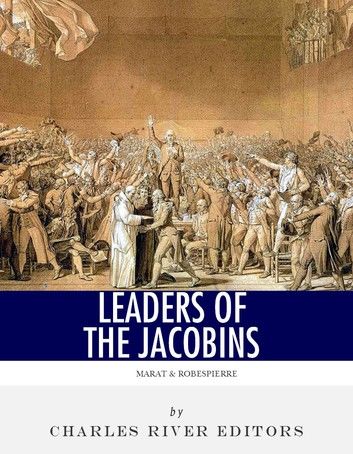| FindBook |
有 1 項符合
Leaders of the Jacobins: The Lives and Legacies of Maximilien Robespierre and Jean-Paul Marat的圖書 |
 |
Leaders of the Jacobins: The Lives and Legacies of Maximilien Robespierre and Jean-Paul Marat 作者:Charles River Editors 出版社:Charles River Editors 出版日期:2012-10-07 語言:英文 |
| 圖書館借閱 |
| 國家圖書館 | 全國圖書書目資訊網 | 國立公共資訊圖書館 | 電子書服務平台 | MetaCat 跨館整合查詢 |
| 臺北市立圖書館 | 新北市立圖書館 | 基隆市公共圖書館 | 桃園市立圖書館 | 新竹縣公共圖書館 |
| 苗栗縣立圖書館 | 臺中市立圖書館 | 彰化縣公共圖書館 | 南投縣文化局 | 雲林縣公共圖書館 |
| 嘉義縣圖書館 | 臺南市立圖書館 | 高雄市立圖書館 | 屏東縣公共圖書館 | 宜蘭縣公共圖書館 |
| 花蓮縣文化局 | 臺東縣文化處 |
|
|
圖書介紹 - 資料來源:樂天KOBO 評分:
圖書名稱:Leaders of the Jacobins: The Lives and Legacies of Maximilien Robespierre and Jean-Paul Marat
*Includes pictures of Robespierre, Marat, and important people, places, and events in their lives.*Includes quotes from Marat's fiery journals and Robespierre's most famous and controversial quotes about the French Revolution, Louis XVI, and more. *Includes detailed descriptions of the deaths of Marat, Robespierre, Louis XVI and Marie Antoinette*Includes Bibliographies on both leaders for further reading.*Includes a Table of Contents.Citizens, did you want a revolution without a revolution? Maximilien RobespierrePeople, give thanks to the gods! Your most redoubtable enemy has fallen beneath the scythe of Fate. Jean-Paul MaratIn many ways it is fitting that Maximilien Robespierre (1758-1794) is one of the best known figures of the French Revolution, if not its most famous. The early years of the Revolution were fueled by Enlightenment ideals, seeking the social overthrow of the caste system that gave the royalty and aristocracy decisive advantages over the lower classes. Few were as vocal in their support of Enlightenment ideals as Robespierre, who was heavily versed in Rousseau and Montesquieu, a champion of the bourgeoise, and an advocate of human rights who opposed both slavery and the death penalty. But history remembers the French Revolution in a starkly different way, as the same leaders who sought a more democratic system while out of power devolved into establishing an incredibly repressive tyranny of their own once they acquired it. For that reason, the Reign of Terror became the most memorable aspect of the Revolution, and at the head of it all was Robespierre, whose position on the Committee of Public Safety made him the Reign of Terrors instrumental figure, until he himself became a victim of the Revolutions extremism. King Louis XVI gave the French Revolution a scapegoat. Robespierre gave the French Revolution a leader. And Jean-Paul Marat (1743-1793) gave the French Revolution a voice. One of the most memorable and notorious revolutionaries, Marat became one of the Revolutions best known figures through his speeches, writings, and scathing attacks on everyone he perceived as "enemies of the revolution". Its possible that the Jacobins might not have come to power in 1793 without Marats fiery work championing the lower classes and branding his political foes with the harshest demagoguery. No revolutionary was more passionate, determined and willing to die for the cause. Marats work during the French Revolution and his notorious death at the height of it remain the best known details of his life. Indeed, the image of the Death of Marat by Jacques-Louis David is one of the most commonly associated with the Revolution. But those facts have obscured what the man himself was really like. A trained scientist who served as a doctor before the Revolution, Marat counted among his acquaintances luminaries like Goethe and Benjamin Franklin. At the same time, Marat was an Enlightened political philosopher who advocated for basic human rights and reforms such as fair trials by jury. Leaders of the Jacobins chronicles the lives and legacies of Robespierre and Marat in one gripping narrative, explaining their rise within the Jacobins, the political struggles among the French revolutionaries, and the turmoil that ensued. With quotes, pictures, a bibliography, and a Table of Contents, you will learn about Robespierre and Marat like you never have before.
|











